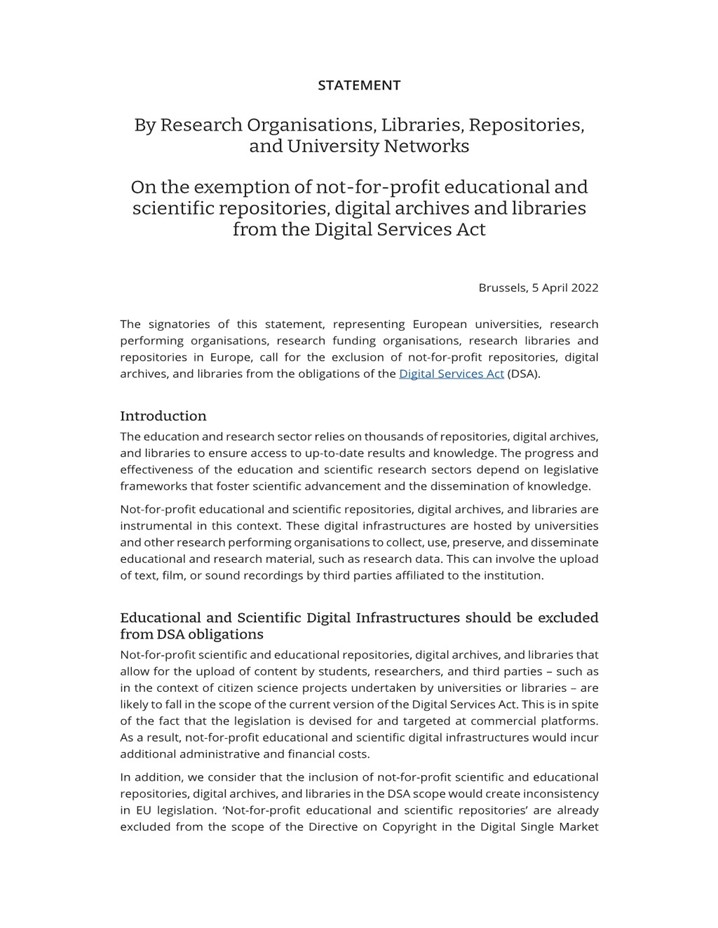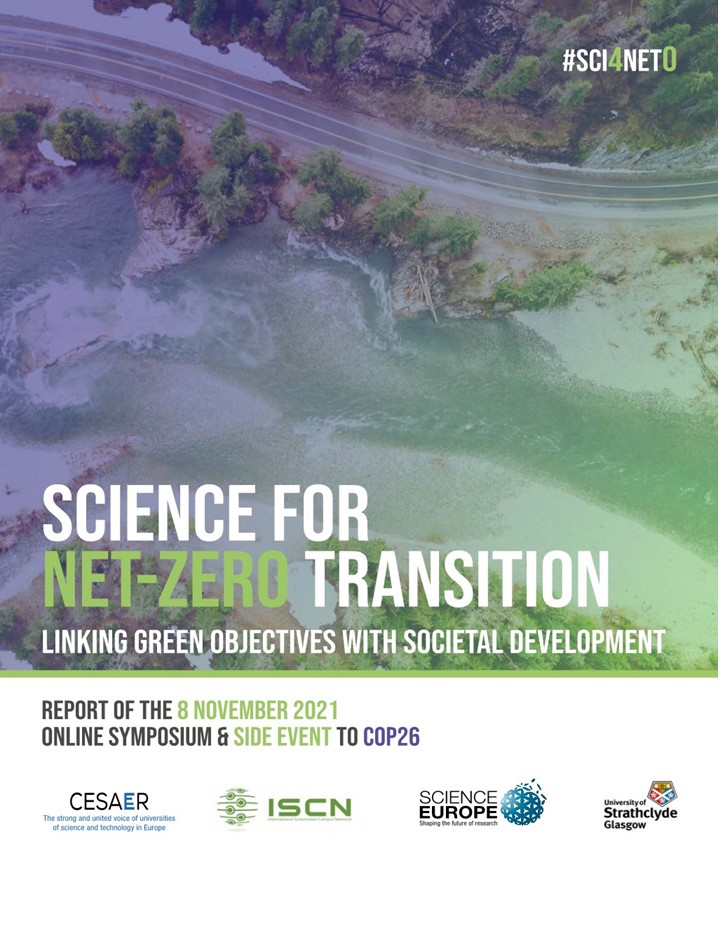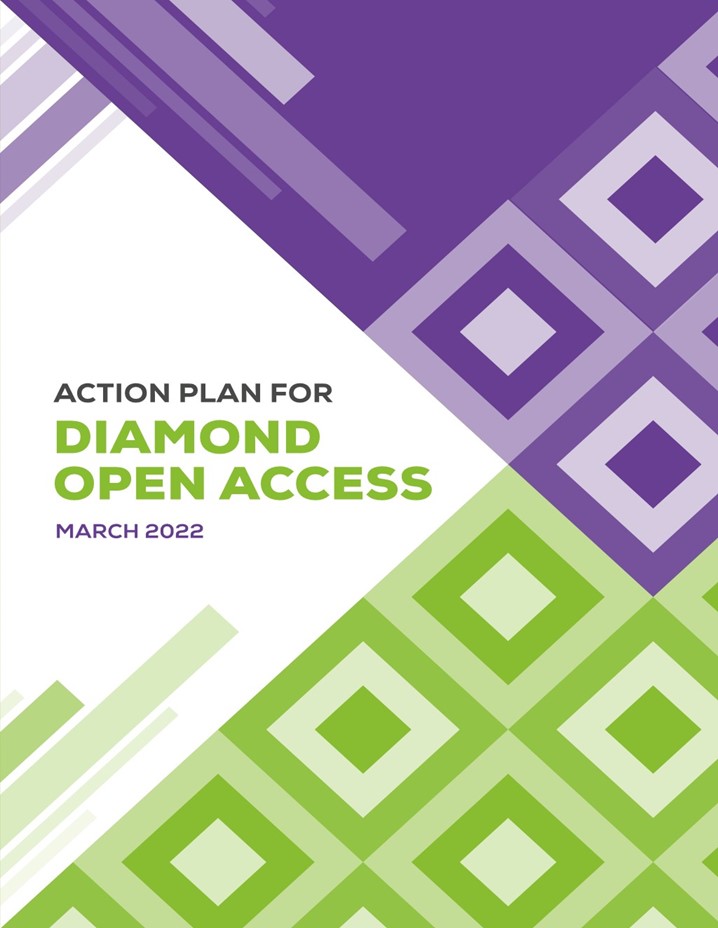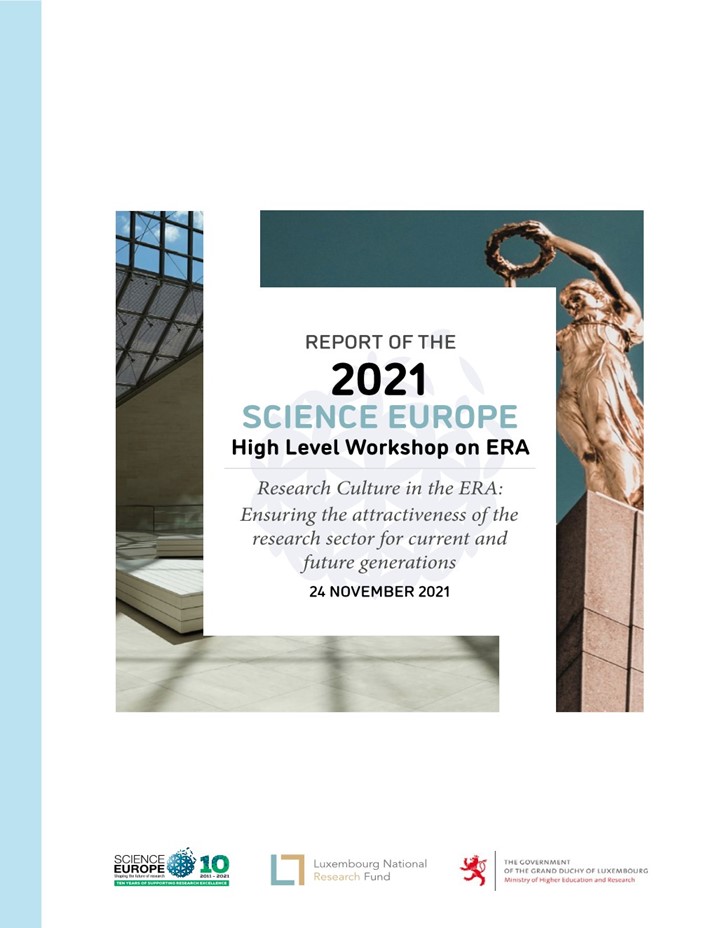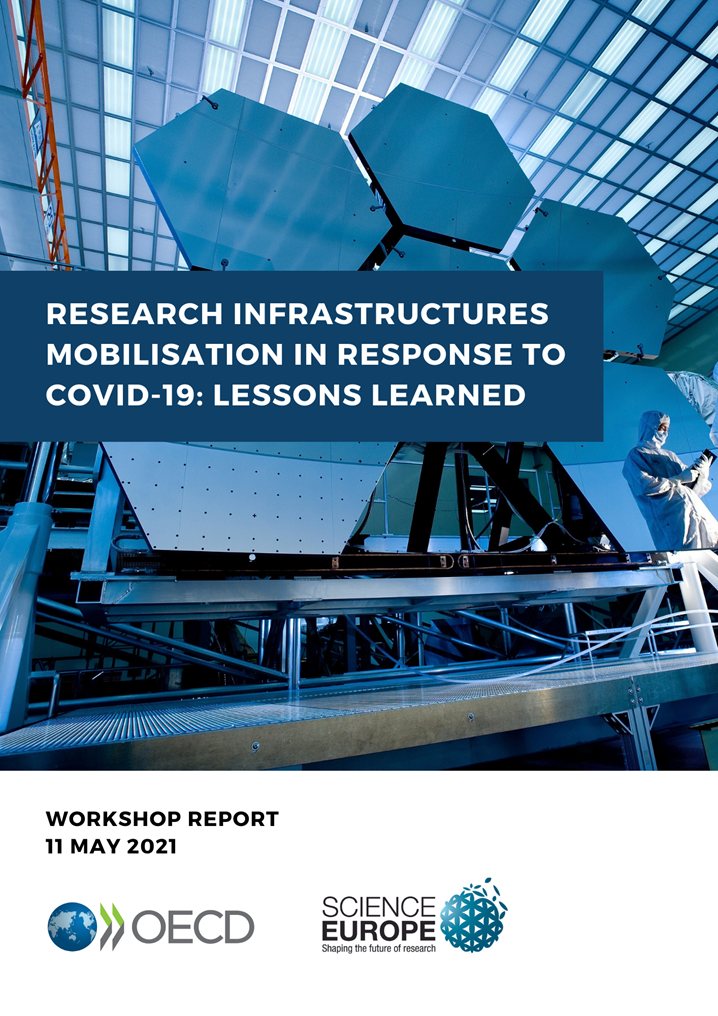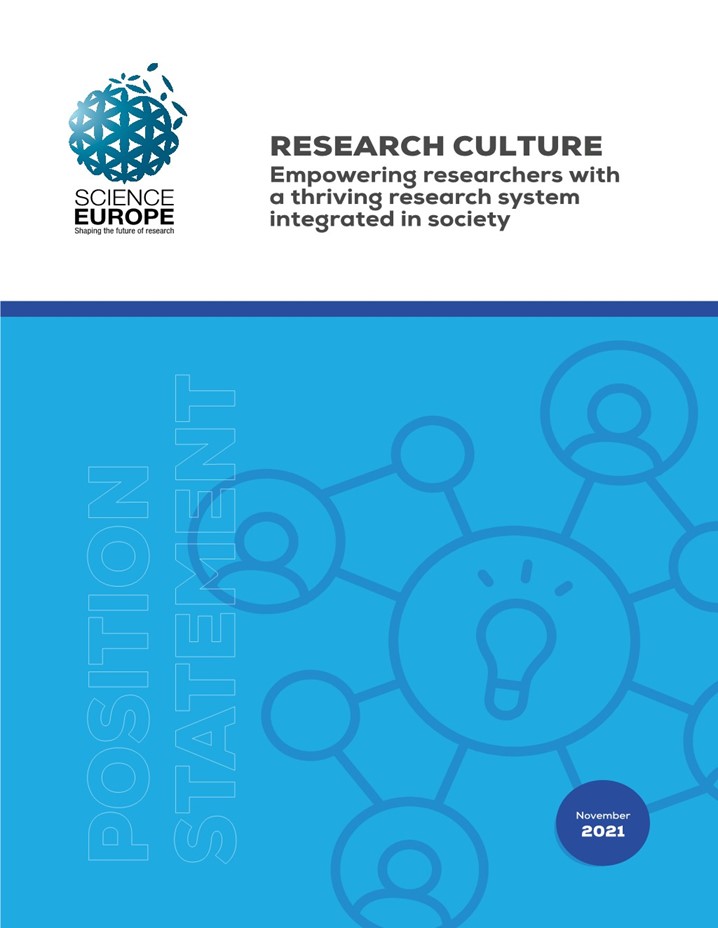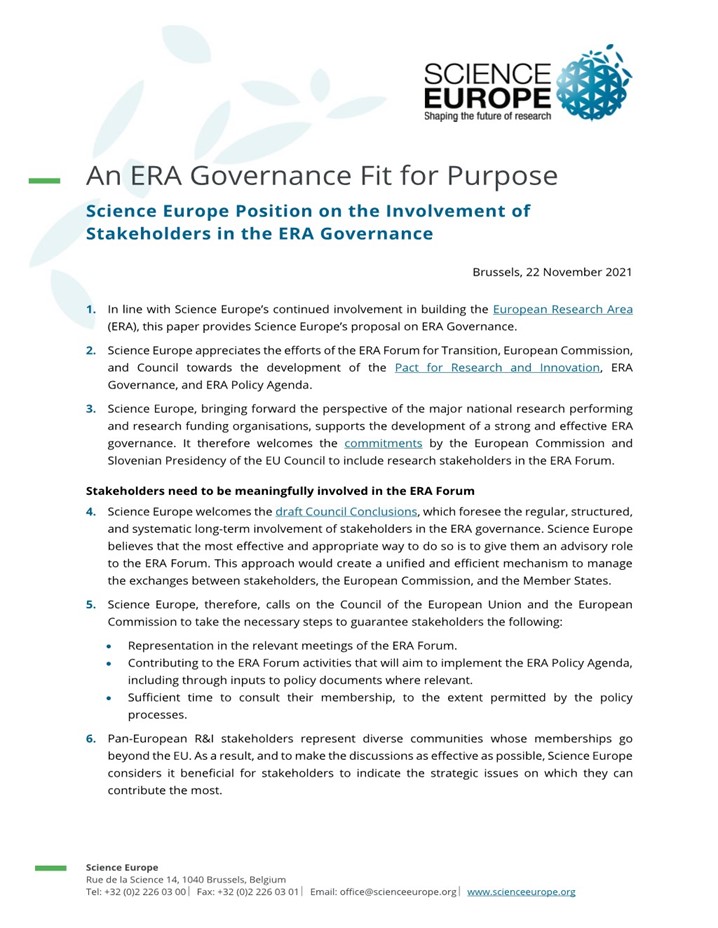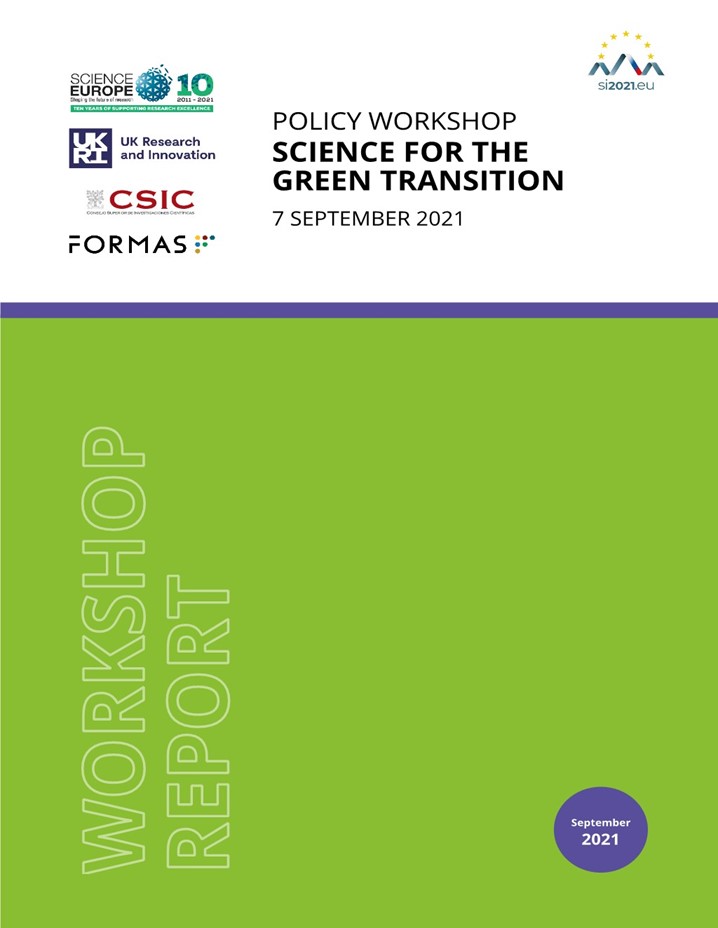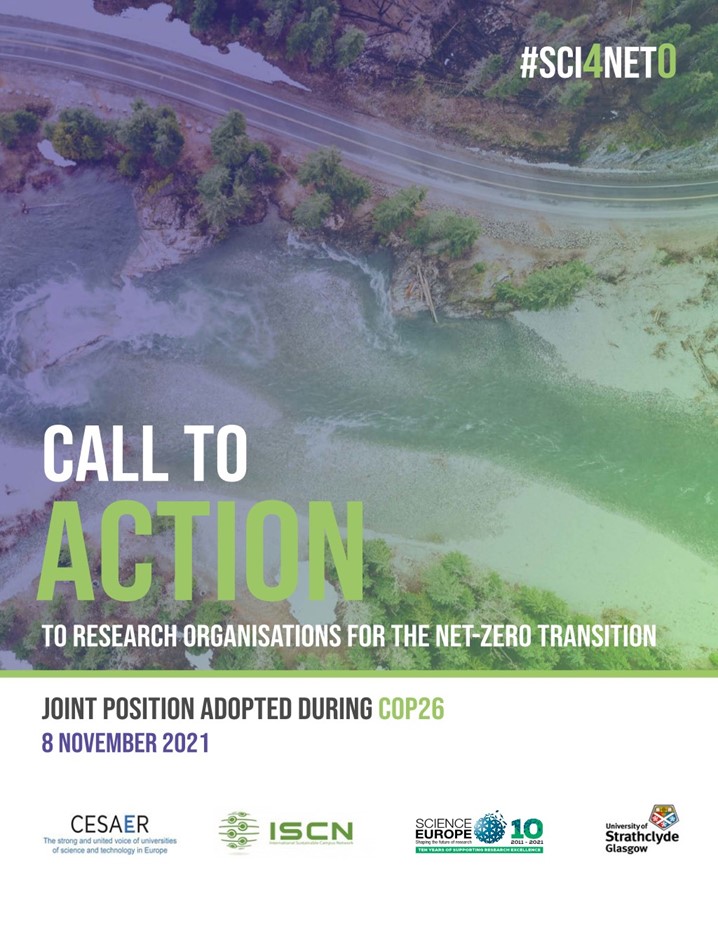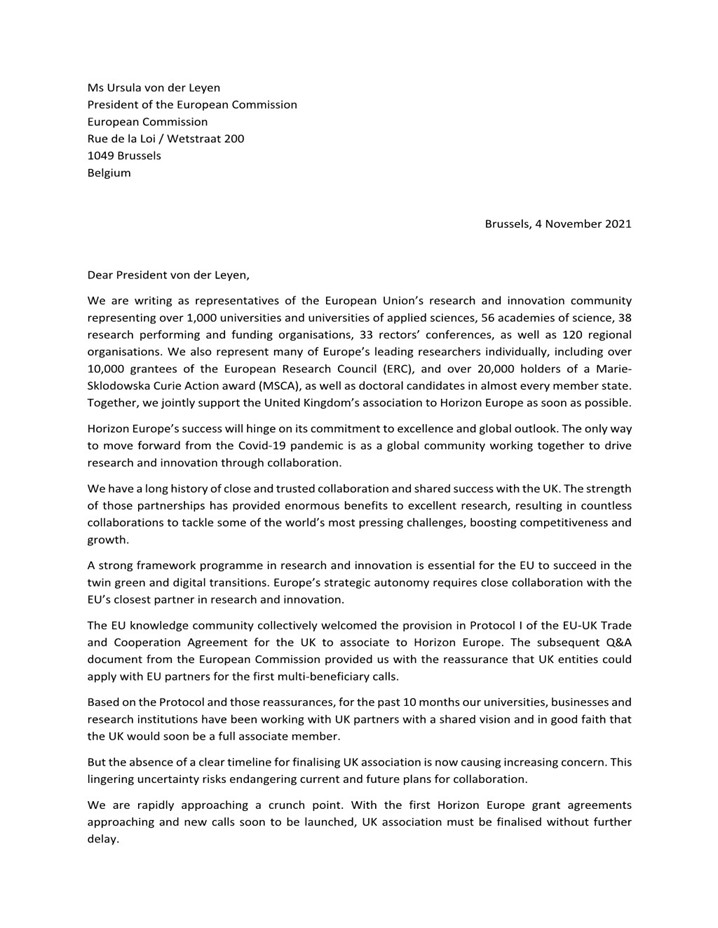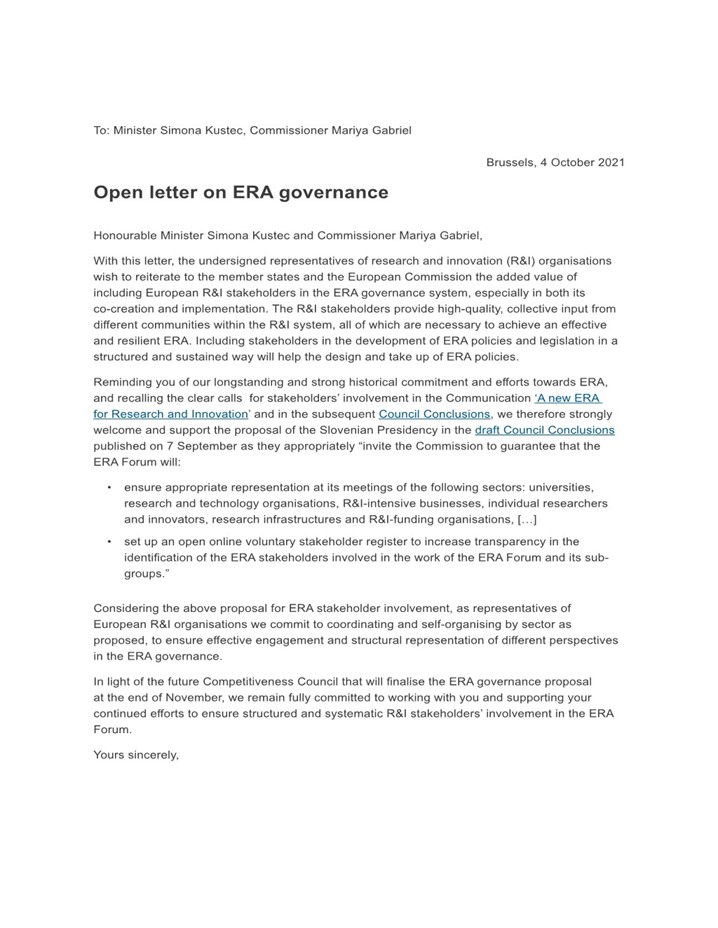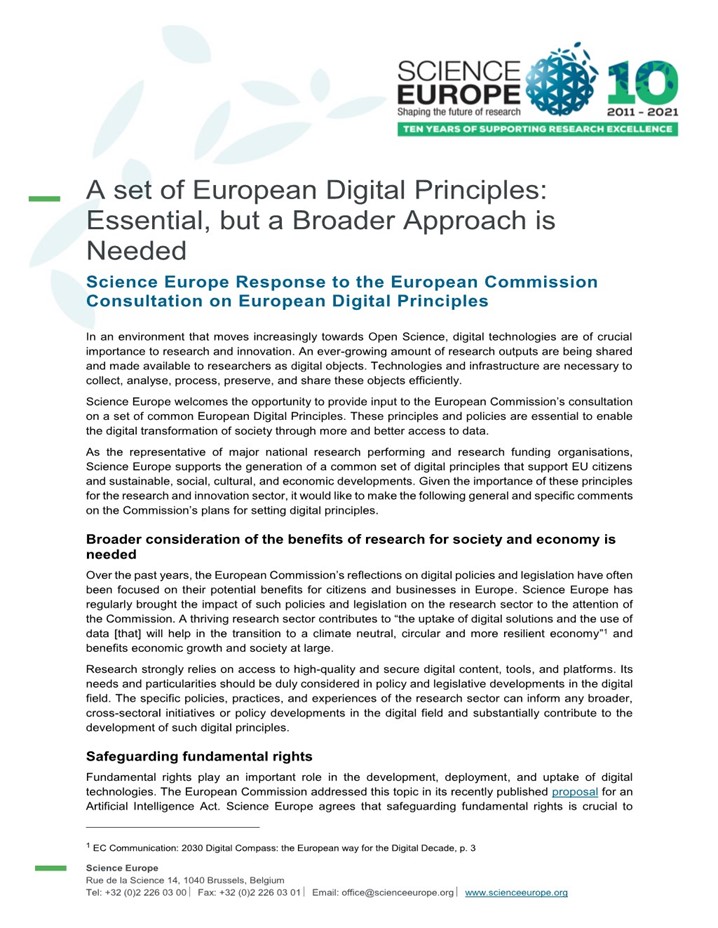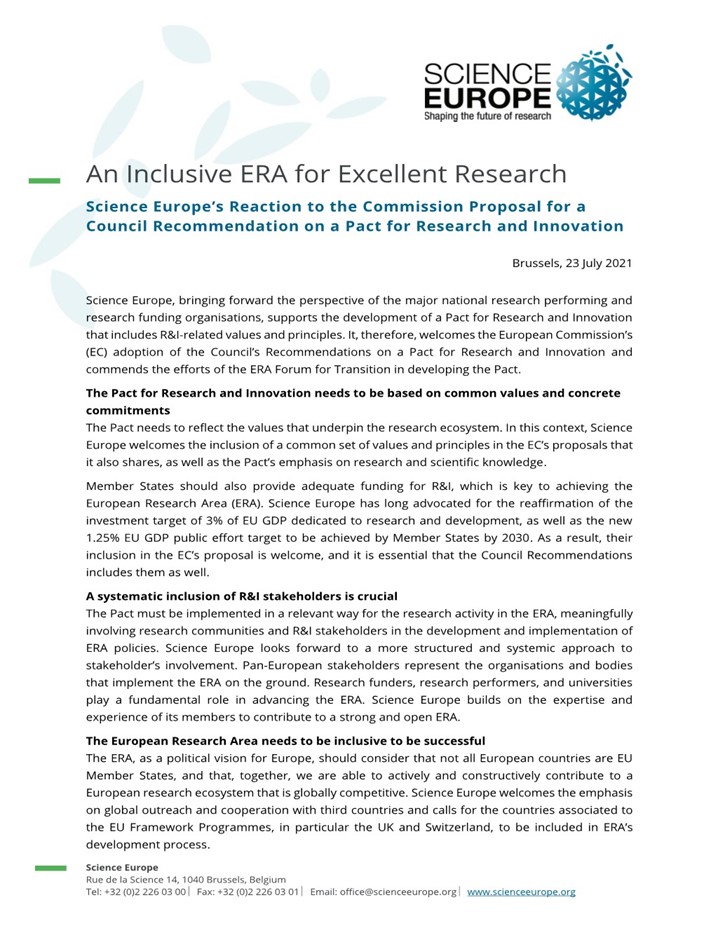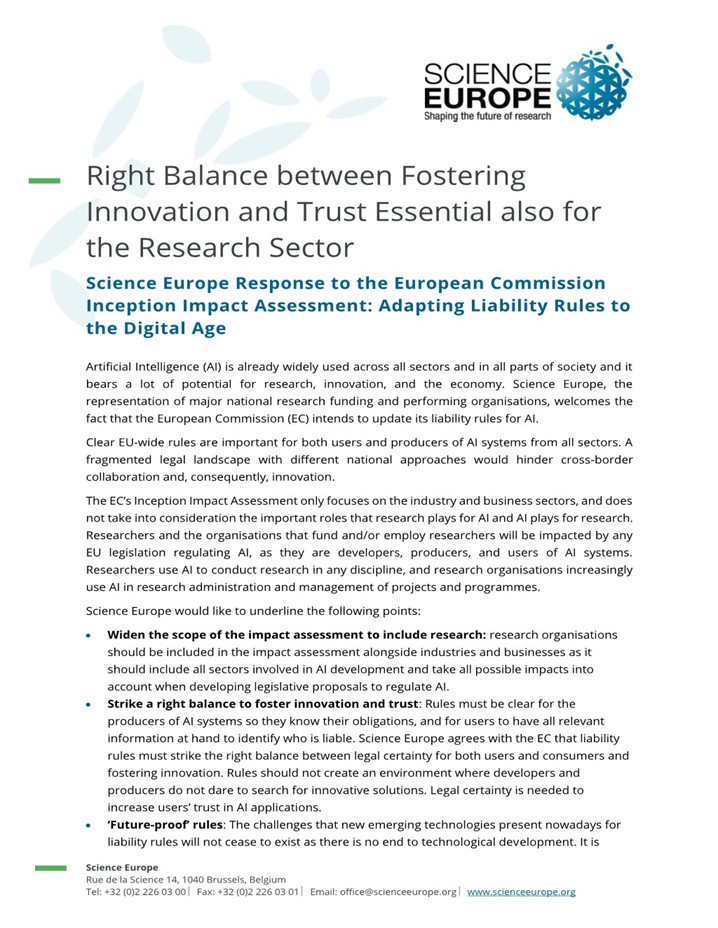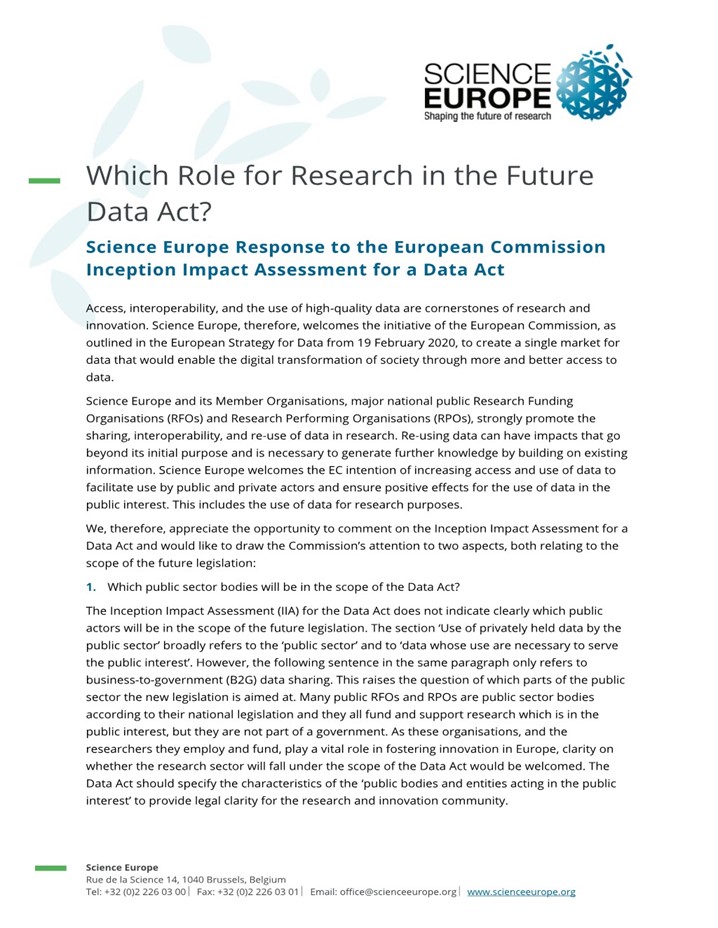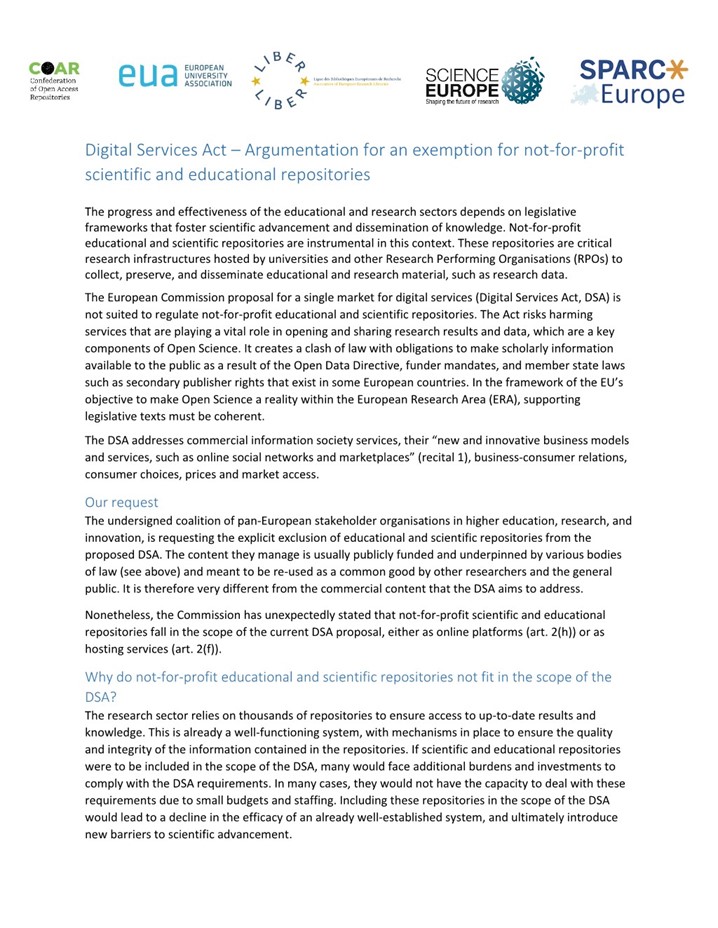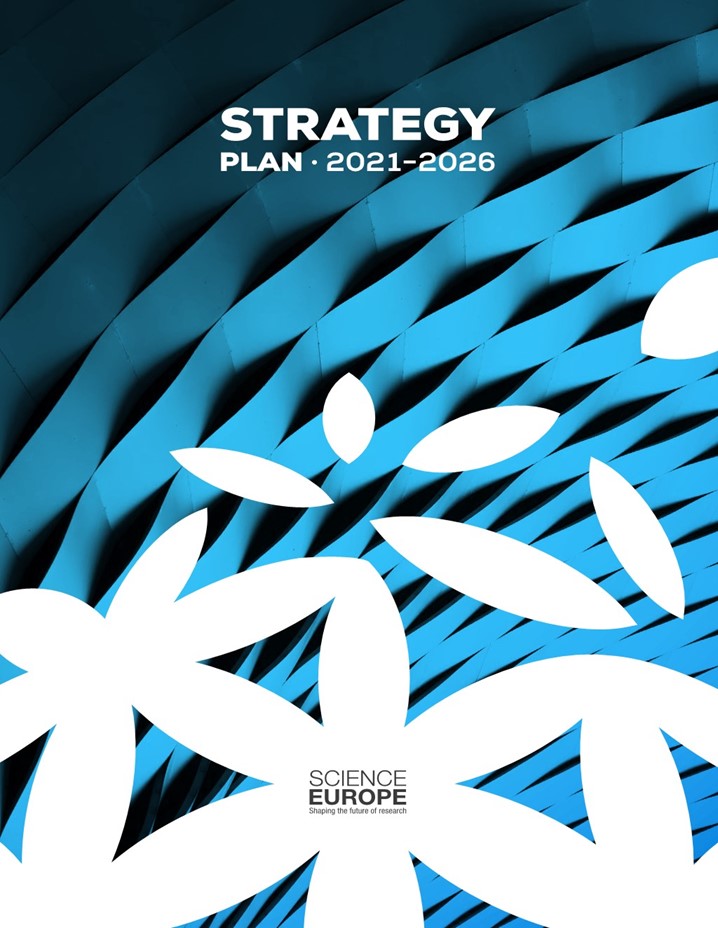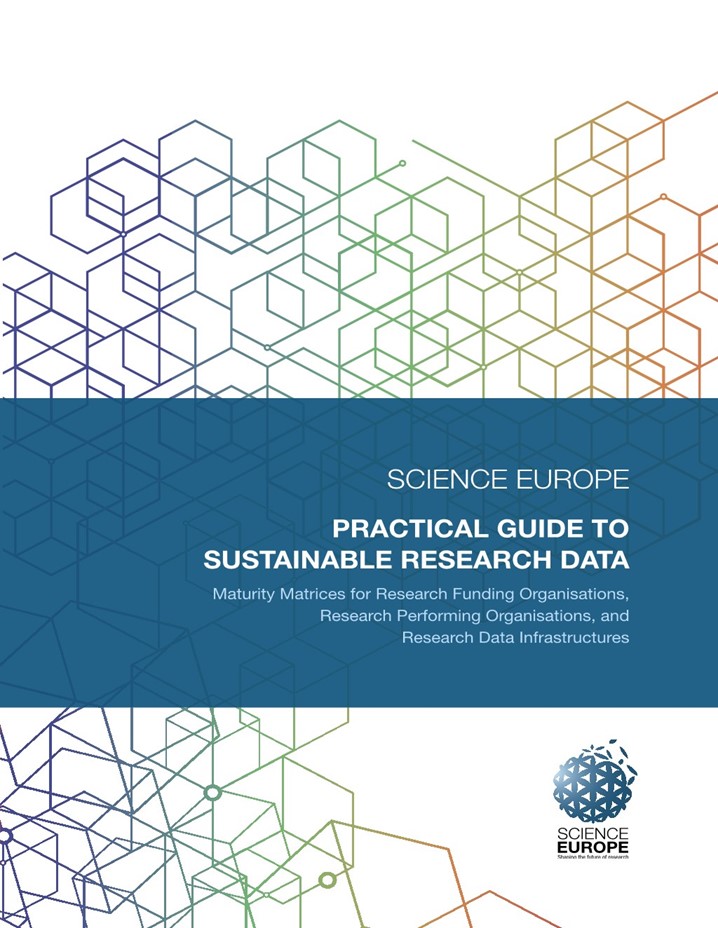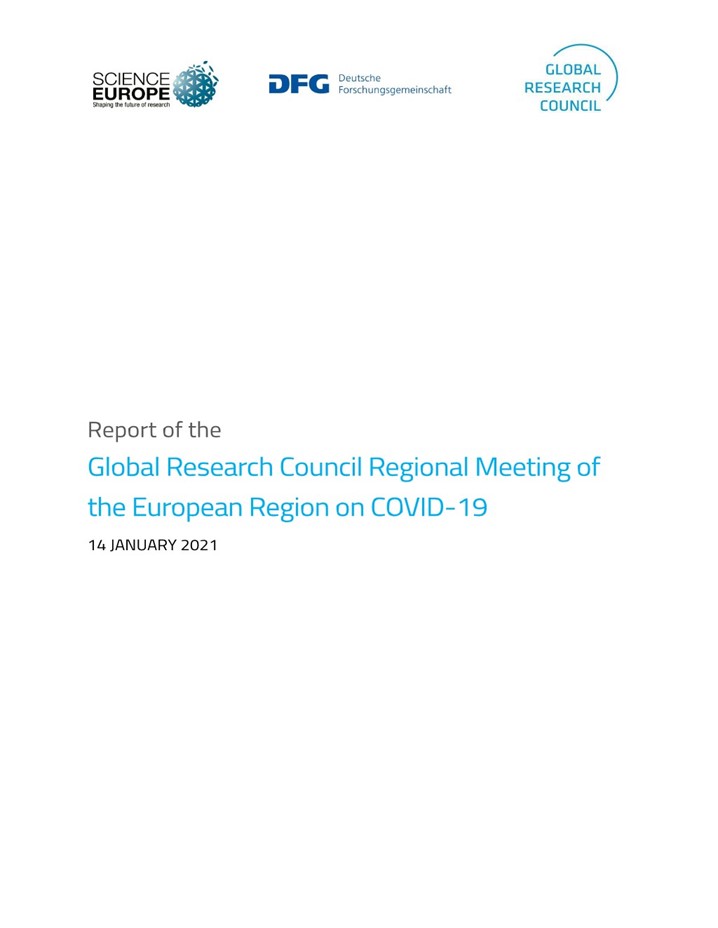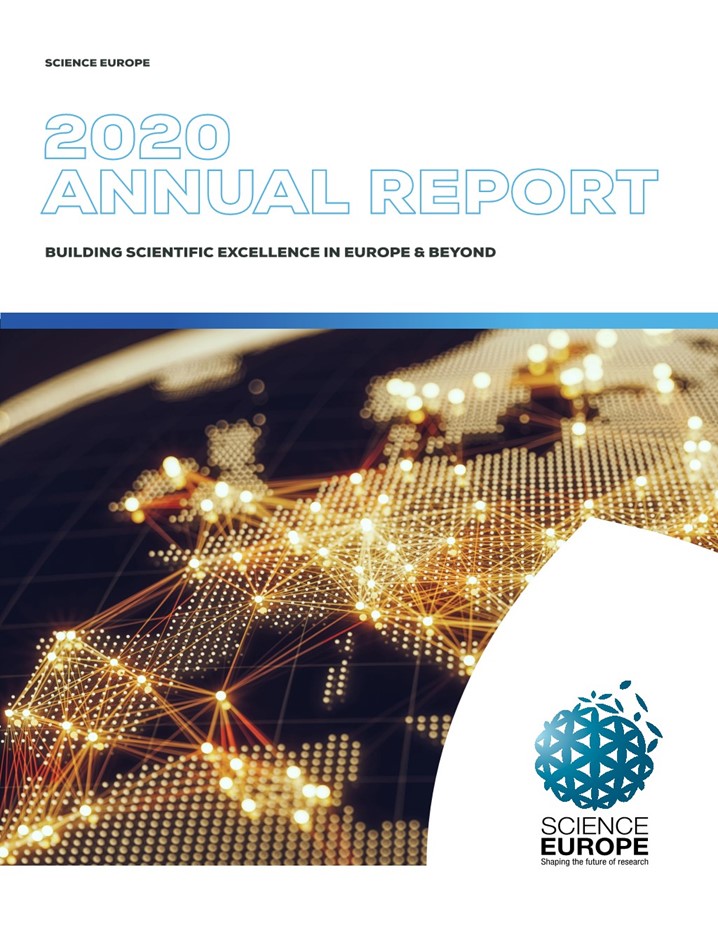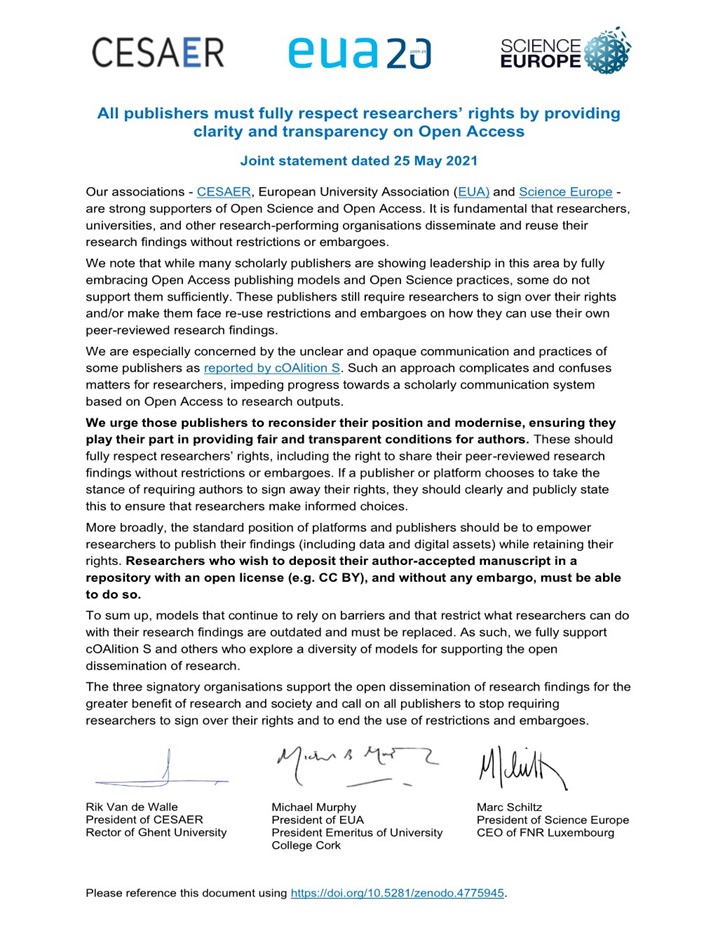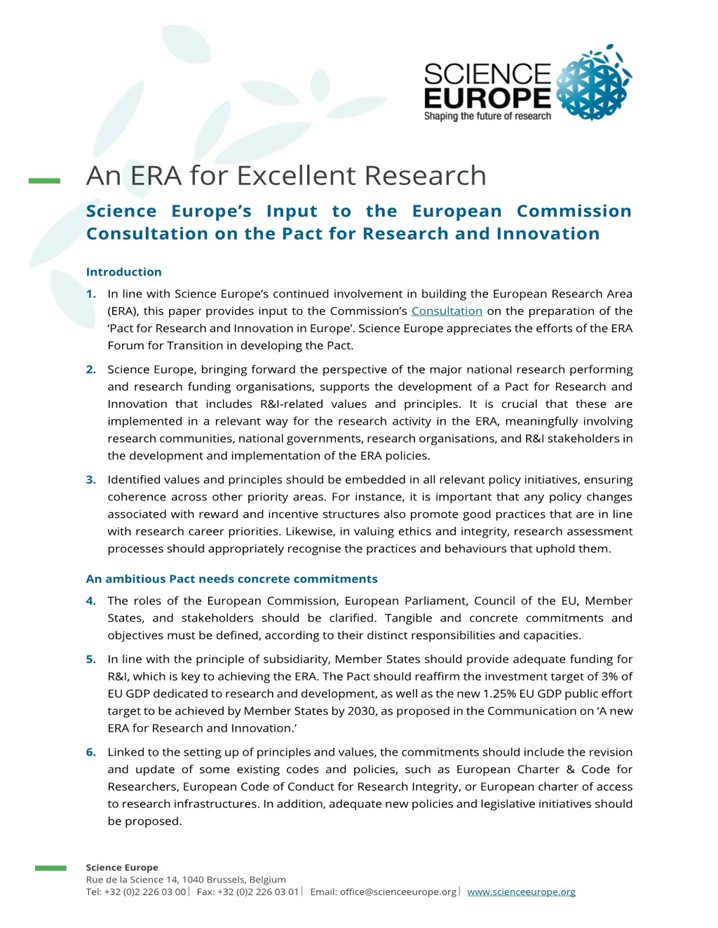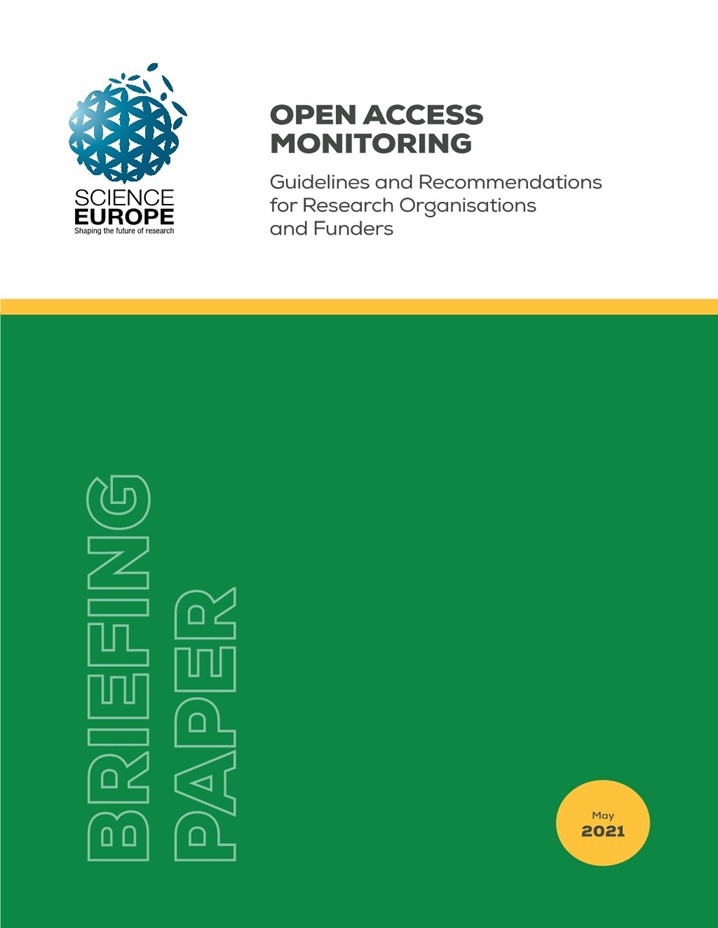Member-only content is available on this page. Please log in to view this content.

Our resources
Discover Science Europe’s comprehensive library of resources, including the most recent publications, briefings, and position statements.
206 resource(s) found
Statement on the exemption of not-for-profit educational and scientific repositories, digital archives, and libraries from the Digital Services Act
Research organisations, libraries, repositories, and university networks call for the the exclusion of not-for-profit repositories, digital archives, and libraries from the obligations of the Digital Services Act.
Report of Symposium on Science for Net-Zero Transition: Linking Green Objectives with Societal Development
Report of the 8 November 2021 Symposium 'Science for Net-Zero Transition', co-organised by CESAER, the International Sustainable Campus Network, Science Europe, and the University of Strathclyde, as a side-event to COP26.
Action Plan for Diamond Open Access
Science Europe, cOAlition S, OPERAS, and the French National Research Agency (ANR) present an Action Plan to further develop and expand a sustainable, community-driven Diamond OA scholarly communication ecosystem.
Report of the 2021 High Level Workshop on ERA: Research Culture in the ERA
The 2021 High Level Workshop on the European Research Area dealt with the topic of research culture and how to keep the research sector attractive for current and future generations of researchers.
Research Infrastructures mobilisation in response to COVID-19: lessons learned
This report provides a summary of the virtual workshop organised by OECD Global Science Forum and Science Europe in May 2021 and set up as a satellite event of the International Conference on Research Infrastructures (ICRI 2021).
Statement on Research Culture - Empowering Researchers with a Thriving Research System
The new statement on Research Culture envisages an ERA that focusses on the quality of research and its processes, supports scientific freedom, and promotes social diversity and inclusion, acknowledging that these conditions will, in turn, foster a productive research system.
An ERA Governance Fit for Purpose
Science Europe Position on the Involvement of Stakeholders in the ERA Governance
Science for the Green Transition
Report of the 7 September Science Europe Policy Workshop 'Science for the Green Transition', co-organised with CSIC, FORMAS, and UKRI. The goal was to study the roles and contributions of research organisations and governments to the green transition.
Call to Action to Research Organisations for the Net-Zero Transition
The partners of the Science for Net-Zero Symposium CESAER, the International Sustainable Campus Network (ISCN), Science Europe, and the University of Strathclyde are calling for a collaborative, systems-based approach to tackling the Net-Zero emissions challenge, and are taking immediate steps to lead by example.
Association of the UK to Horizon Europe must go forward
The European Union’s research and innovation community urges the European Commission and UK Government to work towards a successful UK association to Horizon Europe as soon as possible.
Open letter on ERA governance
With this letter, the undersigned representatives of research and innovation (R&I) organisations wish to reiterate the added value of including European R&I stakeholders in the ERA governance system, especially in both its co-creation and implementation.
Research Plays an Essential Role in Public Interest Data Use
Science Europe Response to the European Commission’s Consultation on a Future Data Act
A set of European Digital Principles: Essential, but a Broader Approach is Needed
Science Europe Response to the European Commission Consultation on European Digital Principles
An Inclusive ERA for Excellent Research
Science Europe’s Reaction to the Commission Proposal for a Council Recommendation on a Pact for Research and Innovation.
Right Balance between Fostering Innovation and Trust Essential also for the Research Sector
Science Europe Response to the European Commission Inception Impact Assessment: Adapting Liability Rules to the Digital Age
Which Role for Research in the Future Data Act?
Science Europe Response to the European Commission Inception Impact Assessment for a Data Act.
Digital Services Act – Argumentation for an Exemption for Not-for-profit Scientific and Educational Repositories
Science Europe joins forces with other stakeholder organisations to argue for an exemption for not-for-profit scientific and educational repositories in the Digital Services Act (DSA). Please note this is for internal use only as this document was sent to a selected number of Parliament and Council representatives to advocate for the exemption.
Science Europe Strategy Plan 2021-2026
The Science Europe Strategy Plan comes at a crucial time for European Research an Innovation (R&I) and includes an updated vision, mission, values, and set of strategic priorities for the association. It supports its Member Organisation in their mission to create world-class scientific knowledge, delivering more benefit for our societies.
Q&A: Aligning Research Data Management Across Europe
On 27 January 2021, Science Europe presented the second, extended version of its Practical Guide to the International Alignment of Research Data Management during a webinar with more than 260 participants.
As it was unfortunately not possible to address all questions participants asked during the launch event, this document presents the answers to the questions asked to both Science Europe and the webinar speakers.
Practical Guide to Sustainable Research Data
This Practical Guide provides guidance to ensure the long-term preservation and accessibility of research data. Three complementary maturity matrices provide funders, performers, and data infrastructures with a way to create a common understanding of the approaches needed.
Report of the GRC Regional Meeting of the European Region on COVID-19
The outbreak of a new type of Coronavirus (SARS-CoV-2) delayed the organisation and hosting of all GRC meetings in 2020. On 14 January 2021, Science Europe and the German Research Foundation (DFG) co-hosted the 2020 regional meeting for the European region on COVID-19.
2020 Annual Report
The year 2020 saw a global pandemic attest to the value of science. In the race for COVID-19 treatments and vaccines, Science Europe’s Member Organisations were at the forefront of the global response and our association became more relevant and important than ever.
Joint Statement on Empowering Researchers in Open Access
Released in partnership with CESAER and the European University Association (EUA) this joint statement outlines how all publishers must fully respect researchers’ rights by providing clarity and transparency on Open Access.
Response to the EC Consultation on the ERA Pact for Research and Innovation
The European Commission approach to the ‘ERA Pact for Research and Innovation in Europe’ should be as inclusive as possible. Its development and implementation need to include research communities, national governments, research organisations, and R&I stakeholders.
Briefing Paper on Open Access Monitoring
This briefing paper aims to support decision makers at research organisations and research funders to develop new monitoring exercises or assess and improve existing processes to measure the Open Access status of publications.

